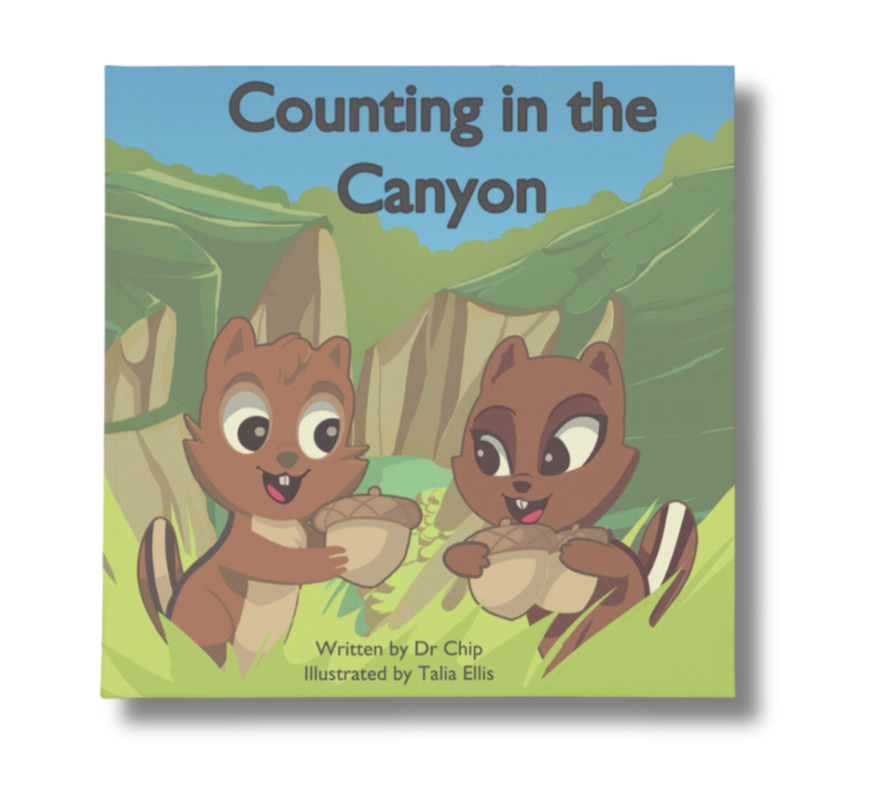Your basket is empty
Already have an account? Log in to check out faster.
Already have an account? Log in to check out faster.

Remember the wonder you felt as a child discovering a tiny ant carrying a crumb, or watching leaves dance in the wind? Nature has an extraordinary way of captivating young minds. When we bring nature into storytelling, we create powerful connections that nurture not just a child's imagination, but their cognitive, emotional, and social development. In a world where children spend increasingly less time outdoors, nature-based stories have become more important than ever.
Nature-based stories do something remarkable – they speak directly to children's innate fascination with the living world. Developmental psychologists call this connection "biophilia," the instinctive bond between humans and other living systems. Stories that incorporate natural settings, animals, and outdoor adventures tap into this natural affinity, creating immediate engagement and deeper learning opportunities.
When children fall in love with nature through stories, they develop the foundation for environmental consciousness that can last a lifetime:
Before children can care about saving rainforests or protecting endangered species, they must first develop a sense of wonder about the natural world. Stories that celebrate the magic of nature – from the industrious ant to the majestic canyon – plant seeds of curiosity that blossom into genuine care for our environment.
Nature-based stories help children form emotional bonds with the natural world. When a child identifies with a character exploring a forest or counting creatures in a canyon, they begin to see themselves as connected to, rather than separate from, nature. This emotional connection becomes the foundation for environmental stewardship.
Stories set in specific natural environments – like "Counting in the Canyon" with its vibrant depiction of canyon life – help children develop what educators call a "sense of place." This understanding of different ecosystems and their unique characteristics builds geographical awareness and appreciation for diverse landscapes.
Beyond environmental awareness, nature-based stories offer significant cognitive advantages:
The natural world offers an extraordinary vocabulary playground. From the names of animals and plants to descriptive words for natural phenomena, nature-based stories introduce children to rich, specific language in memorable contexts. When children count from one to ten while exploring the Rolling Acorn Canyon, they're not just learning numbers – they're absorbing language that describes the natural world.
Nature operates as interconnected systems, and stories set in natural environments help children begin to understand these relationships. A story about forest animals preparing for winter or desert plants surviving drought introduces concepts of cause and effect, cycles, and interdependence – building blocks for more sophisticated thinking.
Nature-based stories often highlight details of the natural world that might otherwise go unnoticed. As children listen to descriptions of intricate spider webs or changing cloud patterns, they develop sharper observation skills that transfer to other learning areas.
The natural world provides powerful metaphors and settings for emotional and social development:
Nature operates at a different pace than our busy human world. Stories that capture the gentle rhythms of natural settings – the changing seasons, day turning to night, the steady flow of a river – help children internalize these calming patterns. For many children, nature-based stories provide a soothing transition to rest or quiet time.
Nature presents challenges – storms, changing seasons, the need to find food or shelter. Stories that show characters (human or animal) navigating these natural challenges help children understand resilience and problem-solving. When a character in a story adapts to changing conditions in nature, children learn flexible thinking.
When children identify with animal characters or learn about fragile ecosystems, they develop empathy that extends beyond human relationships. This expanded circle of compassion enriches their emotional intelligence and social awareness.
To maximize the benefits of nature-based storytelling:
Whenever possible, pair nature stories with outdoor experiences. After reading "Counting in the Canyon," take a nature walk to count interesting things you find. This connection between story and experience deepens learning and creates memorable associations.
Let the stories inspire further exploration. A book about forest animals might lead to researching which animals live in your local area. A story about changing seasons could inspire a seasonal nature journal. The best nature books don't end when you close the cover – they open doors to continued discovery.
Design a special reading area with natural elements – perhaps some interesting stones, pinecones, or leaves; a nature-themed blanket; or images of beautiful landscapes. This dedicated space signals that nature stories hold a special place in your home.
Explore our collection of nature-based children's books for every age
Check out our tooth fairy pillows!
Children & Nature Network's research on nature-connection benefits
American Academy of Pediatrics on the importance of nature experience
In our increasingly digital world, nature-based stories like "Counting in the Canyon" provide essential bridges between children and the natural environment. These stories do more than entertain – they nurture environmental consciousness, cognitive development, and emotional well-being. As you share nature-based books with the children in your life, you're not just reading stories; you're planting seeds of wonder that may grow into a lifelong connection with the natural world.
Looking to enrich your child's bookshelf with enchanting nature-based stories? Our beautifully illustrated books, including "Counting in the Canyon," invite children to explore the wonders of the natural world through engaging storytelling and vibrant imagery that sparks imagination and nurtures a love for nature.

